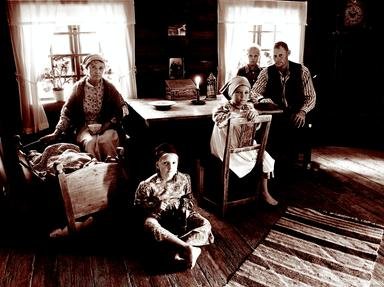Quiz Answer Key and Fun Facts
1. The decade started off in 1800 with one of the most rancorous Presidential campaigns in American history, between President John Adams and Vice-President Thomas Jefferson. Jefferson won with 73 electoral votes to 65 for Adams. Which statement about this election is true?
2. Before Adams left office, he made a series of last-minute appointments which would figure in the landmark case of Marbury vs. Madison. These last-minute appointments came to be known as what?
3. In 1803 the United States suddenly doubled in size with the Louisiana Purchase from France. President Jefferson then commissioned an ambitious expedition to explore this new territory. Who are the two men who led this famous expedition?
4. The First Barbary War was fought from 1801 to 1805 between the U.S. and a group of North African states known as the Barbary States. What was the name of the U.S. ship which ran aground in Tripoli Harbor during the war, with the entire crew being held hostage until the war's end?
5. The decade of the 1800s was not a good one for Aaron Burr. Jefferson dropped him from the national ticket in 1804, he killed Alexander Hamilton in a duel and was charged with murder in two states, and then in 1807 he was charged and tried for treason. The treason charge was based on a controversial trip Burr took to which part of the world?
6. Jefferson won re-election in 1804, and then in 1808 his Secretary of State, James Madison, won the Presidency. Who was the losing Federalist Party candidate in each of these elections?
7. This decade saw the first impeachment of a Supreme Court Justice. Who was this Associate Justice, who was tried and acquitted by the United States Senate?
8. Perhaps the greatest fiasco of the decade was a series of Congressional Acts in 1807 and 1808 designed, among other things, to prohibit American ships from landing in foreign ports unless specifically authorized by the President. What were these misguided Acts called?
9. On March 2, 1807, President Thomas Jefferson signed a bill which did what?
10. On June 15, 1804, the Twelfth Amendment to the Constitution was ratified. What did this Amendment concern?
Source: Author
chessart
This quiz was reviewed by FunTrivia editor
bloomsby before going online.
Any errors found in FunTrivia content are routinely corrected through our feedback system.
